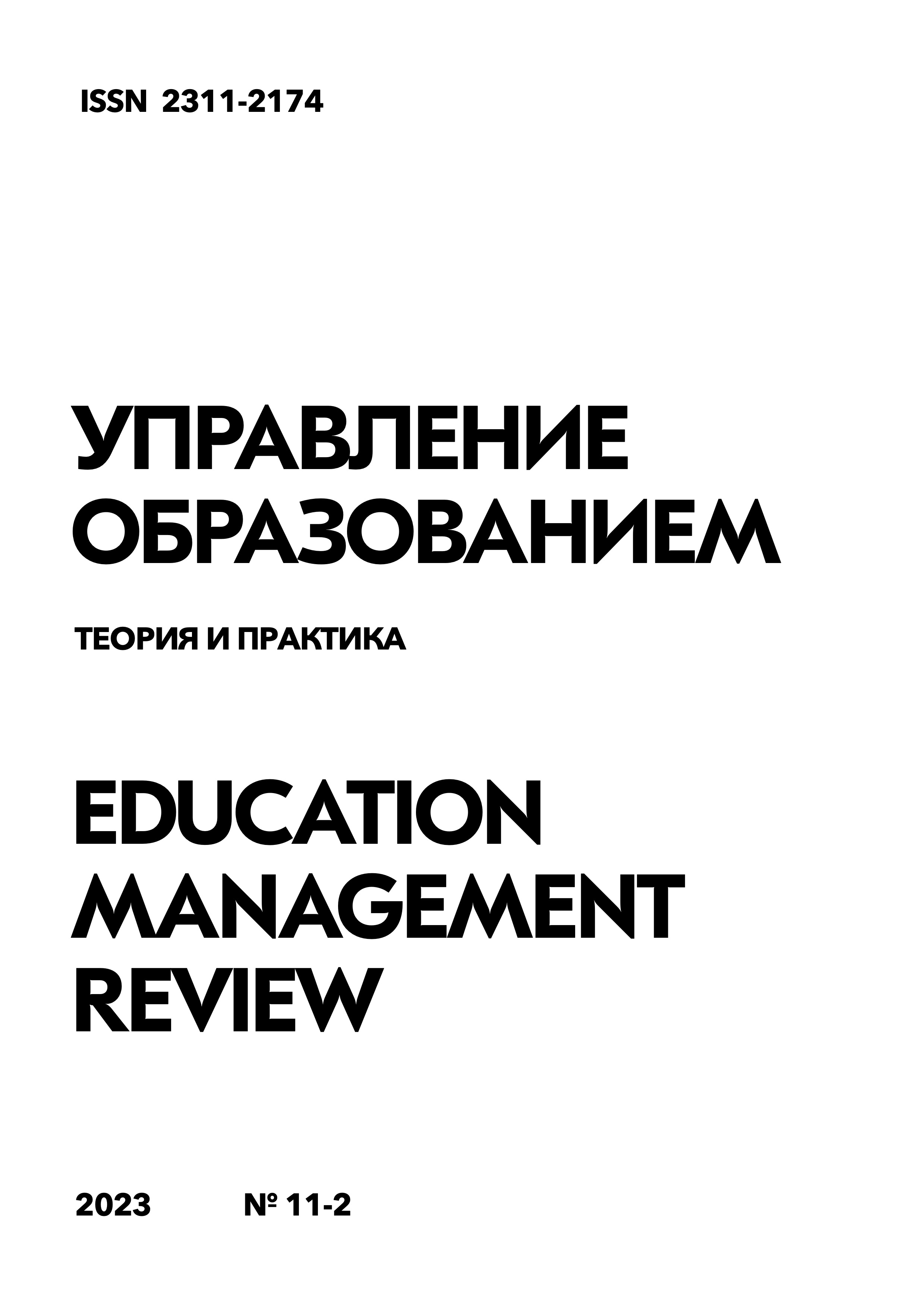The effectiveness of the introduction of coaching as a personnel management tool in Russian universities: methods, problems and prospects
DOI:
https://doi.org/10.25726/q7984-2019-3820-gKeywords:
coaching, personnel management, educational technologies, universities, professional development, RussiaAbstract
In the modern educational sphere of Russia, the use of coaching as a tool for personnel management at universities is becoming particularly relevant. Given the dynamic development of educational technologies and the increasing need for advanced training of teaching staff, coaching seems to be an effective means to achieve these goals. This is confirmed by the analysis of data collected at 10 leading Russian universities in the period from 2018 to 2022, where coaching programs were introduced. Materials and methods. The study is based on the analysis of the results of a survey of 200 teachers and administrative staff from selected universities, as well as on the study of data on job satisfaction and career growth of employees before and after the introduction of coaching programs. Methods such as content analysis, correlation analysis and the case study method were used to study specific examples of successful coaching applications. Results. It is shown that the introduction of coaching into the university environment led to an increase in the productivity of teachers by 18% and an increase in their motivation by 25%. In addition, there was a decrease in staff turnover by 10%, which indicates an increase in employee satisfaction with their work. The results obtained at Moscow State University are particularly highlighted, where, thanks to the introduction of a targeted coaching program, the level of employee engagement increased by 30%.
References
Агарагимова В.К., Абдулаев М.А., Амамбаева Н.С., Амчиславская Е.Ю. Подготовка студентов бакалавриата, магистратуры, аспирантуры к осуществлению будущей профессиональной деятельности на основе современных социокультурных реалий. Москва: Деловая карьера, 2021. 166 с.
Айсувакова Т.П., Ахмедова Э.М., Горбунова Н.В., Давыдова Л.Н. Психолого-педагогические аспекты осуществления образовательного процесса в современных социокультурных условиях. Москва: Деловая карьера, 2021. 165 с.
Алпацкая Е.В., Грец А.Н., Юденков А.В. Методы оптимизации учебного процесса в условиях дистанционной работы в вузах физической культуры // Ученые записки университета им. П.Ф. Лесгафта. 2021. № 2 (192). С. 9-13.
Арпентьева М.Р., Тащёва А.И., Гриднева С.В. Психолого-педагогические аспекты рекреации и забота о телесном капитале // Физическая культура. Спорт. Туризм. Двигательная рекреация. 2019. Т. 4. № 1. С. 7-13.
Буренкова Н.В., Быкова И.В., Тонких А.П. Дистанционное обучение как фактор повышения уровня школьного образования в постпандемийный период // Управление образованием: теория и практика. 2022. № 3(49). С. 226-234.
Баранова И.В., Мирюгина Н.А., Смотряева К.С. Лингвокоучинг как современная технология обучения немецкому языку // Наука, образование, культура. 2020. № 4. С. 136-144.
Бышевская А.В., Грец А.Н., Юденков А.В. Оценка перспектив развития дистанционного образования в профильных спортивных вузах России // Физическое воспитание и спортивная тренировка. 2021. № 2(36). С. 183-189.
Герасимова Т.Н., Гусева Н.В. Использование профессионально адаптивного тестирования в процессе обучения иностранному языку курсантов военных вузов // Мир науки, культуры, образования. 2019. № 3(76). С. 224.
Гусева Н.В. Балльно-рейтинговая система как эффективное средство педагогической диагностики при обучении иностранному языку курсантов военных вузов // Мир науки, культуры, образования. 2021. № 2 (87). С. 151-153.
Ли Линьсун. Использование коуч-технологии в процессе формирования эмоционального интеллекта студентов-духовиков из КНР: автореф. дис. канд. пед. наук. СПб. 2021. 24 с.
Малинин В.А., Повшедная Ф.В., Пугачев А.В. Формирование духовно-нравственных качеств личности обучающихся в условиях современного образования // Вестник Мининского университета. 2022. Т. 10. № 1(38). DOI 10.26795/2307-1281-2022-10-2. EDN CFAMCD.
Никулина Н.Н., Березина С.В., Ушаков И.И. Сущность и роль коучинга в образовании и воспитании // Образование. Наука. Научные кадры. 2019. № 3. С. 165-169. DOI 10.24411/2073-3305-2019-10161. EDN RBMBSB.
Рахманова Ю.К., Каргопольцева С.И. Метод учебного проекта в профессиональном образовании // Наука без границ. 2018. № 3 (20). 54-59.
Сундукова Г.М., Деревягина Л.Н., Шрамченко Т.Б. Коучинг как ресурс для инновационных изменений в подготовке бакалавров // Вестник евразийской науки. 2022. Т. 14. № 3. УДК 336.1
Толстобоков О.Н. Современные методы и технологии дистанционного обучения: монография // Мир науки. Москва: 2020. С. 72. URL: https://izd-mn.com/PDF/37MNNPM20.pdf
Catlin K., McGraw S. Better Allies: Everyday Actions to Create Inclusive, Engaging Workplaces // London: Better Allies Press, 2021. P. 282.
Franklin M. The HeART of Laser-Focused Coaching: A Revolutionary Approach to Masterful Coaching. London: Thomas Noble Books, 2019. 294 p.
Johnson St.K. Inclusify: The Power of Uniqueness and Belonging to Build Innovative Teams. New York: Harper Business, 2020. 288 p.




